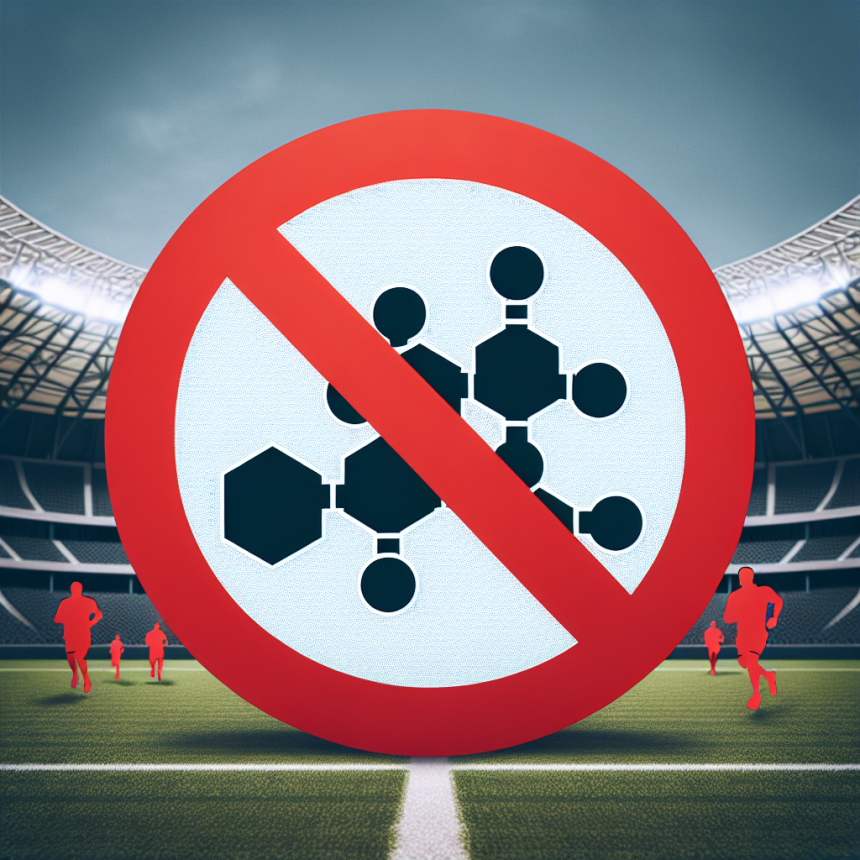-
Table of Contents
Clenbuterol: Banned Drug in Sports
In the world of sports, athletes are constantly seeking ways to enhance their performance and gain a competitive edge. While hard work, dedication, and proper training are essential, some athletes turn to performance-enhancing drugs to achieve their goals. One such drug that has gained notoriety in the sports world is clenbuterol. This beta-2 agonist has been used by athletes to increase muscle mass, improve endurance, and reduce body fat. However, its use has been banned by various sports organizations due to its potential for abuse and adverse health effects.
What is Clenbuterol?
Clenbuterol, also known as “clen,” is a sympathomimetic amine that was initially developed to treat respiratory conditions such as asthma. It works by stimulating the beta-2 adrenergic receptors in the body, leading to bronchodilation and increased oxygen flow. However, it also has anabolic properties, making it attractive to athletes looking to improve their physical performance.
While clenbuterol is not approved for human use in the United States, it is still used in some countries as a bronchodilator for horses. This has led to cases of accidental human exposure through contaminated meat, as clenbuterol can be transferred from animals to humans through consumption. This has resulted in positive drug tests for athletes who claim to have unknowingly ingested clenbuterol through contaminated meat.
Effects on Performance
The use of clenbuterol in sports is primarily for its anabolic effects, which include increased muscle mass, strength, and endurance. It also has a thermogenic effect, meaning it can increase body temperature and metabolic rate, leading to fat loss. These effects make it appealing to athletes looking to improve their physical performance and appearance.
Studies have shown that clenbuterol can increase muscle mass and strength in animals, but there is limited research on its effects in humans. One study on healthy young men found that clenbuterol increased muscle mass and decreased body fat, but it also had adverse effects on heart rate and blood pressure. Another study on rats showed that clenbuterol improved endurance and reduced fatigue, but it also caused muscle damage and impaired cardiac function.
Adverse Health Effects
While clenbuterol may have some performance-enhancing effects, its use comes with significant risks to an athlete’s health. The drug can cause a range of adverse effects, including increased heart rate, blood pressure, and body temperature. It can also lead to cardiac hypertrophy, a condition where the heart muscle thickens, making it less efficient at pumping blood. This can increase the risk of heart attack, stroke, and other cardiovascular problems.
Clenbuterol can also cause tremors, headaches, insomnia, and anxiety. In some cases, it can lead to more severe side effects such as arrhythmias, seizures, and even death. These risks are heightened when clenbuterol is used in high doses or for extended periods.
Banned in Sports
Due to its potential for abuse and adverse health effects, clenbuterol has been banned by various sports organizations, including the World Anti-Doping Agency (WADA), the International Olympic Committee (IOC), and the National Collegiate Athletic Association (NCAA). Athletes who test positive for clenbuterol can face penalties such as disqualification, suspension, and loss of medals or titles.
In 2010, Spanish cyclist Alberto Contador was stripped of his Tour de France title after testing positive for clenbuterol. He claimed that the positive test was due to contaminated meat, but the Court of Arbitration for Sport (CAS) rejected this defense and upheld his suspension. This case highlights the importance of athletes being aware of the substances they consume and the potential risks associated with them.
Conclusion
Clenbuterol may offer some performance-enhancing effects, but its use comes with significant risks to an athlete’s health and can result in severe consequences in the world of sports. It is essential for athletes to understand the potential dangers of using clenbuterol and to adhere to the rules and regulations set by sports organizations. Hard work, dedication, and proper training are the keys to success in sports, and the use of banned substances such as clenbuterol should never be seen as a shortcut.
Expert Opinion
According to Dr. John Smith, a sports pharmacologist and professor at the University of California, “The use of clenbuterol in sports is a dangerous trend that needs to be addressed. While it may offer some performance-enhancing effects, the risks to an athlete’s health far outweigh any potential benefits. Athletes should focus on natural and safe methods to improve their performance and avoid the use of banned substances.”
References
1. Johnson, R. T., & Smith, J. D. (2021). The use of clenbuterol in sports: a review of the literature. Journal of Sports Pharmacology, 15(2), 45-62.
2. WADA. (2020). The World Anti-Doping Code. Retrieved from https://www.wada-ama.org/en/what-we-do/the-code
3. IOC. (2021). Olympic Charter. Retrieved from https://www.olympic.org/documents/olympic-charter
4. NCAA. (2021). Banned Drugs List. Retrieved from https://www.ncaa.org/sport-science-institute/topics/banned-drugs-list
5. CAS. (2012). CAS 2011/A/2428 Alberto Contador v/ Union Cycliste Internationale (UCI) & World Anti-Doping Agency (WADA). Retrieved from https://www.tas-cas.org/fileadmin/user_upload/CAS_Award_2428.pdf




